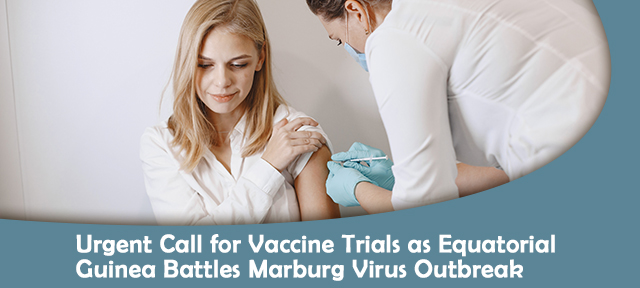Equatorial Guinea has confirmed its first outbreak of Marburg virus, related to Ebola, with a fatality rate of up to 88%. Health officials worldwide are urgently testing whether experimental vaccines can protect against the deadly illness. The World Health Organization has convened an urgent meeting to discuss the feasibility of testing Marburg vaccines in Equatorial Guinea. But control measures such as quarantine could end the outbreak before a single vaccine dose can be administered. Only the Sabin and Janssen vaccines have been tested in humans, and availability ranges from a few hundred to a few thousand doses.


